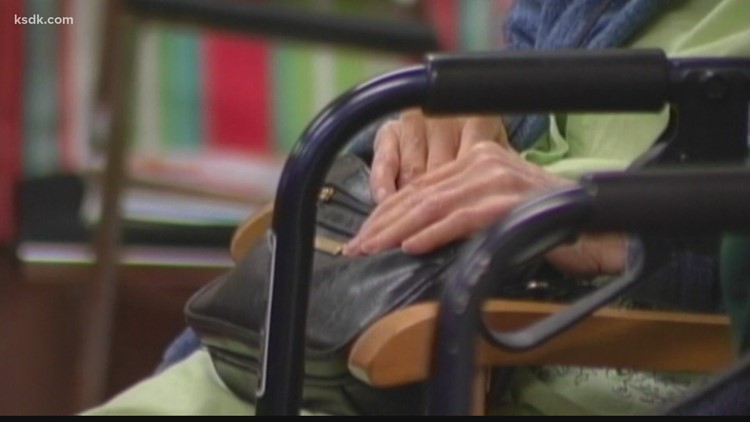ST. LOUIS — Amid recent Endangered Silver Advisories in the St. Louis area, the Alzheimer’s Association has shared some tips on safety and wandering prevention for caregivers of those living with dementia and local resources. This follows two cases of men with Alzheimer's who went missing and have both since been found.
Kristen Hilty, a care consultant with the Alzheimer’s Association based in the Springfield Missouri office who works with the Missouri chapter, said the association is concerned about wandering in our population of individuals who have dementia.
“We know that at least six in 10 individuals with dementia will at least wander once over the course of the disease,” Hilty said.
Hilty said the association educates and informs families about this occurrence, especially as the weather turns cold.
“We always are even more vigilant in educating families about that risk because if their loved one goes missing or wanders away," she said. "The stakes are higher in the wintertime if they’re out overnight.”
Hilty agrees that family members should definitely check in on their loved ones.
“If they’re still living alone and in the early stages of the disease…there are several things you can do to reduce the risk,” Hilty said. “Check in on them, for sure.”
Hilty also said you can install alarms or motion detectors around the home to alert you of any activity, especially in the middle of the night.
“You wouldn’t want them leaving the home without assistance or supervision,” Hilty said.
She said if they live with a relative and they are prone to wander, then it helps to put locks on doors and keys in places that are out of the way.
She also recommends disguising the door with wallpaper that is the same color as the wall. Also, you can put a sheet or curtain over the door, so they don’t know the door is there.
“You might turn your back for a minute, and it can happen in just a second,” Hilty said.
Hilty said keeping your loved one active throughout the day can reduce the chances of wandering, especially when confusion might be higher in the evening.
Hilty said a lot of the Endangered Silver Advisories involve drivers as well.
“I’m always concerned when someone drives off in a vehicle,” she said. “If your loved one is no longer driving…be sure to hide those car keys or keep them away where they can’t access them.”
Hilty said some people forget they can’t drive and it’s a hard conversation to have with your family member if they haven’t stopped driving yet.
If they are in the early stages of dementia and are still driving, then consider putting a GPS monitoring device in the car so you keep an eye on where they are.
“Just monitor their driving behavior. We can make sure the driving stops way before we might have a wandering incident,” Hilty said.
For information and other tips to reduce the risk of wandering, reach out to the association for access to resources and call their 24/7 hotline at 800-272-3900 for a care consultation.
“Just know you’re not alone. There are people out there who we have that conversation often so we can provide a lot of resources to help keep your loved ones safe,” Hilty said.
If there's something newsworthy happening where you live send us an email to tips@ksdk.com and our team of reporters will look into it.



